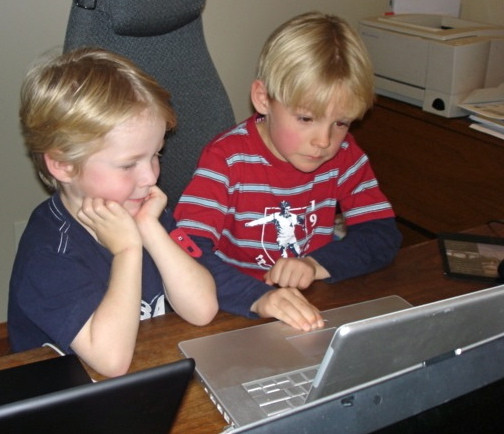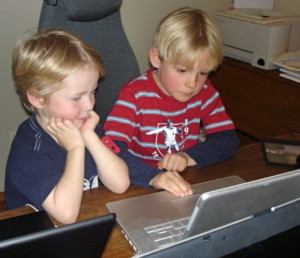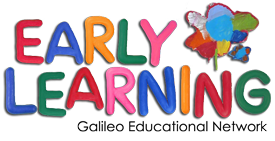
 From online games and homework help, to instant messaging and Facebook, kids today have a wealth of information at their fingertips.
From online games and homework help, to instant messaging and Facebook, kids today have a wealth of information at their fingertips.
For parents, it’s a world presenting its share of questions and challenges – is it best to limit time spent with these technologies? Do kids actually learn anything when they’re used?
Both kids and parents must understand not only how to operate in today’s tech-savvy world, but disseminate what they find. We must move from being mere consumers to true digital citizens, capable of navigating this new world.
In this video, Dr. Michele Jacobsen explains that children as young as two or three can gain essential social, reasoning and communication skills through the use of technology. Technology should be embraced as a tool of discovery, but it must be used effectively, and in moderation – not at the exclusion of other meaningful activities in the child’s life.
In this next video, Dr. Michele Jacobsen shares how her children became effective users of technology at a very young age. From using apps on the iPad, to making music in GarageBand, and networking two devices to play an online game, it’s apparent that with proper guidance, children can do amazing things with technology. These are important skills as they learn in this participatory digital age.
Safety, security and privacy issues are realities of our digital world. In the next video, Dr. Michele Jacobsen talks about the importance of cultivating digital literacy from a young age. Also key is developing a shared understanding of the dangers, and not seeing it as a barrier to using and accessing technology.
Resources
Children’s Digital Media Centre
The Center is influenced by the work of Dr. Rodney Cocking, one of the first scholars to seriously consider digital media’s impact on children’s learning. His work revolved around how children symbolically represent media and his belief that media research should inform educational issues.
MediaSmarts
MediaSmarts is a Canadian organization dedicated to digital literacy. Today, children and youth must have the critical thinking skills to engage with media and technology in an active and informed way. Tutorials, blog posts and other digital and media literacy programs and resources can be found on this site.
Young Canadians in a Wired World: Life Online
This study explores the attitudes and experiences of children, youth and parents relating to networked technologies. So far, results have indicated parents can be hyper-vigilante about their child’s online activities, while children navigate the online world in a “fishbowl” environment.
Responding to Excessive Use
It’s tempting for parents to act authoritatively and lay down the law on the number of hours their kids can spend on the computer. But in order to effectively address excessive use, there needs to be an active, voluntary commitment on the part of the young person to control their behaviour.
National Association for the Education of Young Children
The National Association for the Education of Young Children (NAEYC) welcomes teachers, researchers, community leaders and others to work together and set standards of excellence for programs and educators in early childhood education.
Fred Rogers Center for Early Learning and Children’s Media
The mission of the center is to advance the fields of early learning and children’s media by acting as a catalyst for communication, collaboration, and creative change. The group is focused on the positive potential of television and new media for supporting the healthy social, emotional, cognitive and physical development of young children.
Early Childhood Research and Practice: Teaching and Learning when No One Is Expert: Children and Parents Explore Technology
Many early childhood education programs have a strong tradition of arts-based programming. But studies in science, math and technology aren’t as prevalent, according to the authors of Early Childhood Research and Practice: Teaching and Learning When No One is Expert – Children and Parents Explore Technology. This paper outlines a pilot project where parents and children work together to learn about robotics.
The Many Benefits, for Kids, of Playing Video Games: Think twice before limiting your kids’ video play; then don’t.
Author and Boston College psychology professor Peter Gray has advice for parents who want to limit the amount of time their child plays on the computer – don’t. In this 2012 blog entry, Gray says there are some compelling reasons why video games can be beneficial to learning.
Computer use by Toddlers and Preschoolers
With computers a part of most classrooms and households, it’s important to understand as much as possible how toddlers and preschoolers interact with technology and how it can be used to develop various skills and abilities. This article appears on The Roadmap, a University of Alberta resource for language and literacy development.

